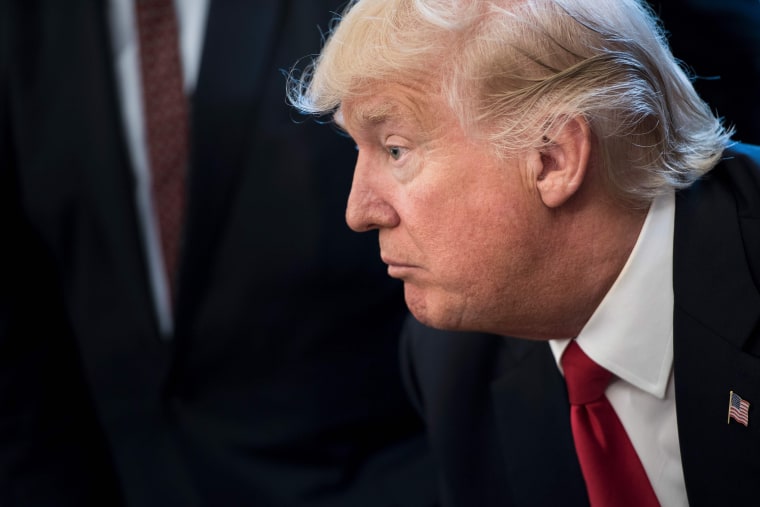CARLSON: On March 4th, 6:45 in the morning, you are down in Florida, and you tweet, "The former administration wiretapped me, surveilled me at Trump Tower during the last election." How did you find out? You said "I just found out," how did you learn that?TRUMP: I had been reading about things. I read in -- I think it was January 20th, a New York Times article where they were talking about wiretapping. There was an article, I think they used that exact term. I read other things. I watched your friend Bret Baier the day previous, where he was talking about certain, very complex sets of things happening, and wiretapping. I said "Wait a minute, there's a lot of wiretapping being talked about." I have been seeing a lot of things.
Let's pause here for a moment. To hear the president tell it, when he told the world that he'd "just found out" about an illegal surveillance operation launched against him by Barack Obama, that was apparently a lie. The New York Times mentioned wiretapping in January, and Fox's Bret Baier mentioned it again more recently, but neither report made any mention of Obama targeting Trump.Also note Trump's vague references to "things": he's read some "things," he's read "other things," and he's "seeing a lot of things." This wouldn't work for a child delivering a book report about a book he hasn't read, and it sounds even worse when a president is defending accusations of an illegal espionage operation.The interview continued:
CARLSON: Why not wait to tweet about it until you can prove it? Don't you devalue your words when you can't provide evidence?TRUMP: Well, because the New York Times wrote about it. Not that I respect the New York Times. I call it the failing New York Times. But they did write on January 20 using the word "wiretap."
This isn't coherent. Why did Trump share a conspiracy theory he couldn't prove? Because two months ago, a newspaper he doesn't trust published a piece that offered literally no proof to substantiate his conspiracy theory. Maybe the president didn't understand the question.This, however, was probably the most striking exchange:
CARLSON: Right, but you are the president. You have the ability to gather all the evidence you want.TRUMP: I do, I do, but I think that frankly, we have a lot right now, and I think if you watch -- if you watched the Bret Baier and what he was saying, and what he was talking about and how he mentioned the word wiretap, you would feel very confident that you could mention the name. He mentioned it, and other people mentioned it.
This is alarmingly nutty. For months, Trump has
looked past the official information available to the president through his own administration, preferring instead to rely on reports from news outlets he doesn't seem to fully understand. In this case, Tucker Carlson tried to remind him that he has access to real evidence that could tell him whether his conspiracy theories are true or not, and Trump immediately responded by pointing to a Fox News report -- which once again, did not in any way bolster his conspiracy theory.The president went on to say that in his conspiracy-theory tweets, he put the word "wiretap" in quotes. "Nobody ever talks about the fact that it was in quotes, but that's a very important thing," Trump said.A
Slate report added, "It is hard to fully describe how clownish the president of the United States looks during this portion of the interview."If the goal of the appearance was to renew fears about Trump's stability, he succeeded beautifully.
